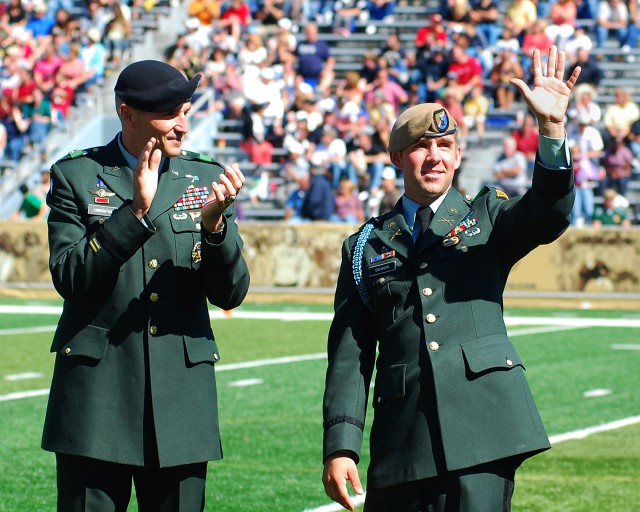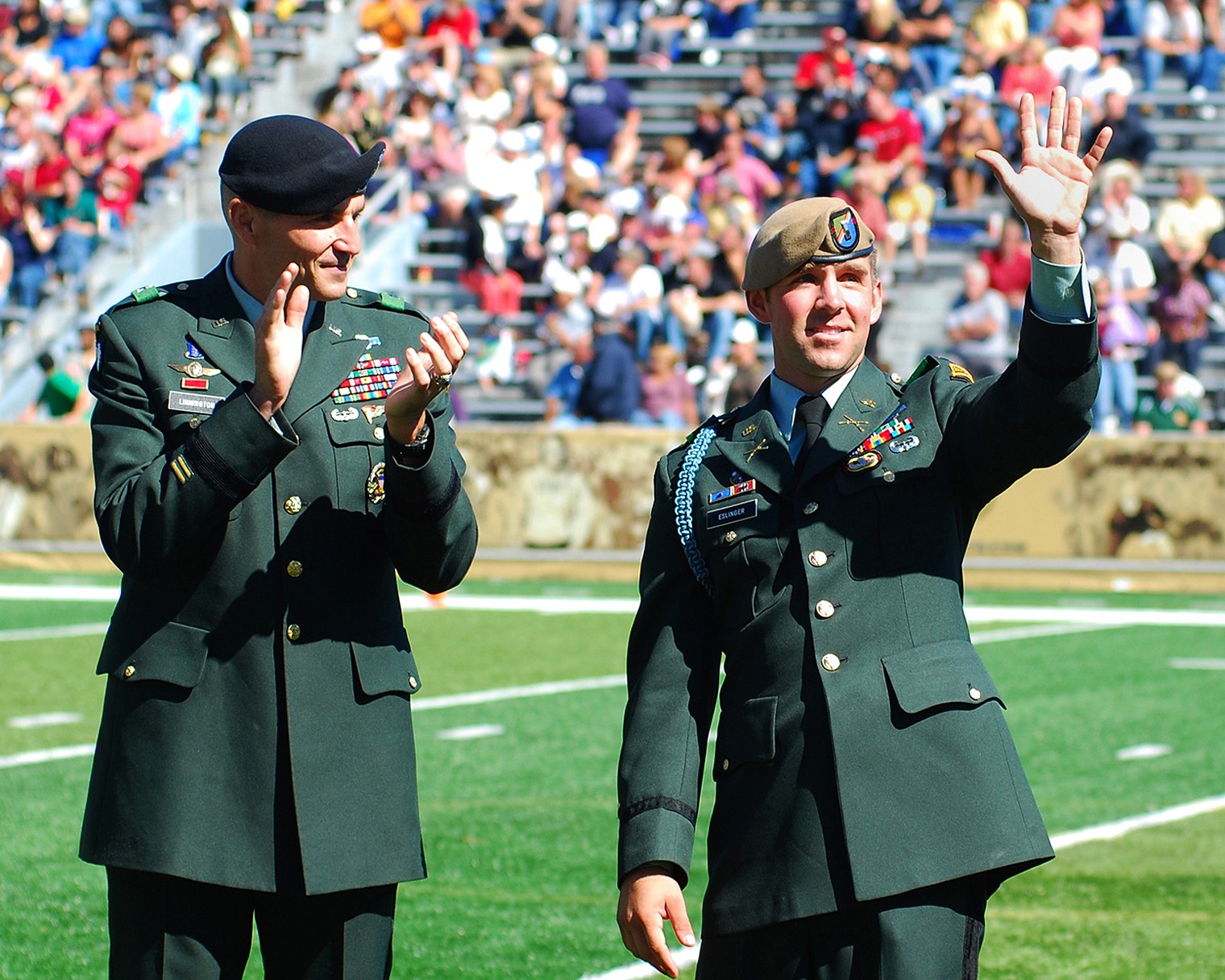
From the day recruits enter the Army, the training they receive can save their lives and the lives of others. The lessons that Soldiers are taught become second nature, without thinking about what the situation is, and the Soldiers react to overcome any adversity that is presented to them.
Four years ago, the West Point Association of Graduates created the Alexander Nininger Award, which is presented to a company grade officer who displayed a selfless act of heroism in combat, much like the actions the award's namesake performed to receive the Medal of HonorA,A posthumously for his actions in the Philippine Islands Jan. 12, 1942.A,A
The WPAOG selected 1st Lt. Nicholas Michael Eslinger, Class of 2007 and Silver Star recipient, as this year's recipient for his actions on his last combat deployment.
On Oct. 1, 2008, then 2nd Lt. Eslinger led his unit's second dismounted patrol of the day through the city streets of Samarra, Iraq.
"We left our forward operating base to search five houses in a neighborhood that had not been searched in some time," the Oakely, Calif., native said. "We were well-rested and prepared for the evening that we were about to endure-just like any other night."
The mission of the evening was similar to many others- comb the area for insurgents and gather intelligence from all individuals encountered through the evening.
"As we entered the alley next to the third house, I saw a grenade come over the wall, much like we have been briefed about," the 25-year-old said. "I was the only one in position to grab the grenade."
Eslinger explained with the way his men were positioned, he was the only one who had the potential of preventing his Soldiers from getting wounded or killed.
"I dove in front of the grenade as it rolled toward my saw gunner," Eslinger said. "As I blocked it, in the same motion, I rolled and threw it in the air toward the wall it had been thrown over."
Eslinger said by what he had learned about the physics of how a grenade rolls-he had to react fast.
"People have asked me why I did not just scream 'grenade,' but I just knew that would not have done anything," Eslinger said.
The former platoon leader of the 2nd Battalion, 327th Infantry Regiment, 101st Airborne Division, feels there are many people out there that do not get recognized for their actions. Before departing for Ranger School, Eslinger was awarded the Silver Star for his actions during that patrol on March 16, 2009, by U.S. Army Chief of Staff Gen. George W. Casey Jr., in a ceremony at Fort Campbell, Tenn.
"There are heroes at every rank from E-1 to O-10, and way too often the American public just does not hear about what they have done," the recent Ranger school graduate said.
This past week, Eslinger came back to West Point for the first time since he graduated in 2007 to speak to the cadets during some of the Junior Leader Panels held Sept. 17-18.
"This panel gives us (Soldiers in the field) the ability to speak with Firsties in an open forum to answer any questions they may have about the field," Eslinger said. "It also allows me to share my experience that I had when I got to my first unit."
Eslinger credits his experience at USMA and his noncommissioned-officer-in-charge in the field for making him the leader he has become.
"The number one thing I learned is to take care of my Soldiers," Eslinger said. "You have to be able to relate to your people because without that you cannot effectively lead your troops."
The 2009 Alexander Nininger recipient embodies the spirit of the award's meaning. He is a prime example to the cadets, who shortly after they leave West Point could be in the very same shoes as Eslinger and be called upon to make those very same decisions.

Social Sharing